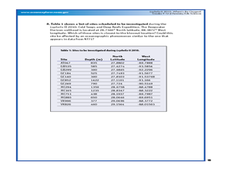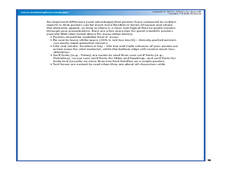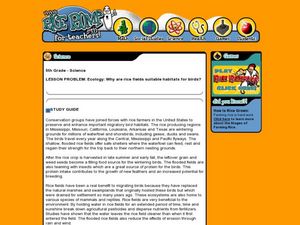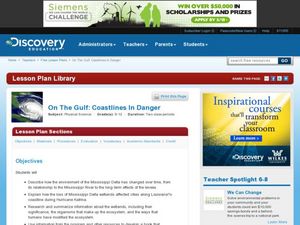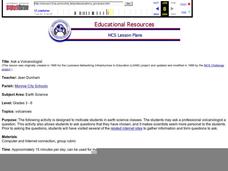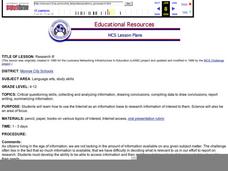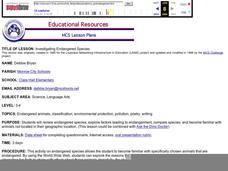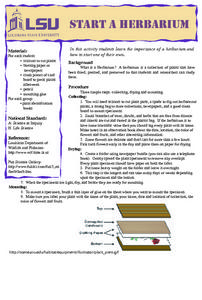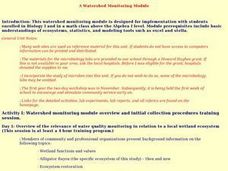Curated OER
Let's Hit the Slopes!
Students study benthic communities in the Gulf of Mexico and explain their roles. In this investigative lesson students participate in a group activity and study how to calculate and index of biological communities.
Curated OER
Where's the Oxygen?
Young scholars study seawater and how temperature and salinity influence it. In this oxygen lesson students complete a lab activity on dissolved oxygen.
Curated OER
What's So Special?
Students study the biology and morphology of Lophelia corals. In this investigative lesson students explain how the coral contributes to communities, and create a poster.
Curated OER
How do rice farmers make good use of the land they use for planting rice?
Second graders discuss how farmers grow rice. In this rice growing lesson plan, 2nd graders see the optimal condition for land in order to grow rice. They experiment with clay and garden soil to see which holds water better.
Curated OER
How Do Rice Farmers Grow Rice?
Second graders create rice bags using classroom objects. In this rice activity, 2nd graders learn about how farmers grow their rice, and what hard work it is. Students learn about rice farmers all over the world and discuss the...
Curated OER
Ecology: Why Are Rice Fields Suitable Habitats for Birds?
Fifth graders discover the uses for rice by reading about the habitats of certain birds. In this agriculture lesson plan, 5th graders research birds from the Gulf Coast and California and their reasons for living in rice fields....
Curated OER
Why Do Geese Fly South For the Winter?
Fifth graders examine migration by tracing animal migration routes on a map. In this animal life lesson, 5th graders observe a map of North America and read about the migration patterns of geese. Students trace the path most geese take...
Curated OER
On the Gulf: Coastlines in Danger
Students study the Mississippi Rover and how it has changed over time. In this environment lesson students research and summarize things about the ecosystem of the river.
Curated OER
Earthquakes
Students research statistics about the last five large earthquakes. They compare data in small groups and present their information orally to the class. They also attempt to predict the next large earthquake.
Curated OER
Last Moments of John Brown
Students read the history of John Brown. Using the internet, they research commentaries on the raid at Harper's Ferry. After observing a painting, "The Last Moments of John Brown," students analyze and write about what they see, think...
Curated OER
Zoobilation
Students research and use their findings to design a PowerPoint presentation and zoo-type habitat with the correct ecosystem for their animal group using a variety of materials such as cardboard boxes, aquariums etc.
Curated OER
Is the Earth Warming? a Test of the Effect of Increased Carbon Dioxide on the Thermal Properties of Air
Students investigate the environmental and economic effects of increased carbon dioxide (CO2) content in the atmosphere.
Curated OER
Fire and Fire Suppression
Students explore forest fires and forest service's new stategies. They study a case of natural burn and the impact of lowering the intensity of a larger forest fire.
Curated OER
Native Species Restoration and its Impact on Local Populations
Students watch video clips of ecosystems and answer questions relating to them.
Curated OER
Volcanoes: How Safe Are They?
Students explore the most dangerous volcanoes on Earth, plot their locations, and research different volcanic hazards.
Curated OER
Ask a Volcanologist
Students ask a professional volcanologist a question online. This lesson allows students to ask questions that they have chosen, and it makes scientists seem more personal to Students.
Curated OER
Investigating Endangered Species
Students pick an endangered animal to research and report their findings to the class.
Curated OER
Researching the World's Oceans
Students research and compare important features of the oceans based on current data. They examine the globe or map, determine the major oceans of the world, and record their names on the data sheet.
Curated OER
Possible Locations
Students create maps with cutout pieces of paper that represent caverns. They develop a scale for their map and decide where the best location is to live. They discover the importance of map reading skills.
Curated OER
Scaling the Map
Middle schoolers practice determining map distances using the map scales. They discover how much an area represents on the map in relation to the actual area. They decide on the best place to build their cavern.
Curated OER
Start a Herbarium
Students explore importance of a herbarium and start one of their own.
Curated OER
A Watershed Monitoring Module
Students explore the relevance of water quality monitoring in relation to a local wetland ecosystem. They conduct standard water quality tests using wet tests and CBL calculators and probes. Student record and interpret the results.
Curated OER
Where Have All the Wetlands Gone?
Students investigate the wetlands. In this environmental conservation lesson, students discuss the characteristics of wetlands and identify their location. Students work in cooperative groups to complete a handout.
Other popular searches
- Louisiana Purchase
- Louisiana Wetlands
- The Louisiana Purchase
- Louisiana History
- Louisiana Geography
- Louisiana Facts
- Louisiana Purchase Jefferson
- Louisiana Purchase Maps
- Maps of Louisiana Purchase
- Map of Louisiana Purchase
- Facts About Louisiana
- Louisiana Artists



